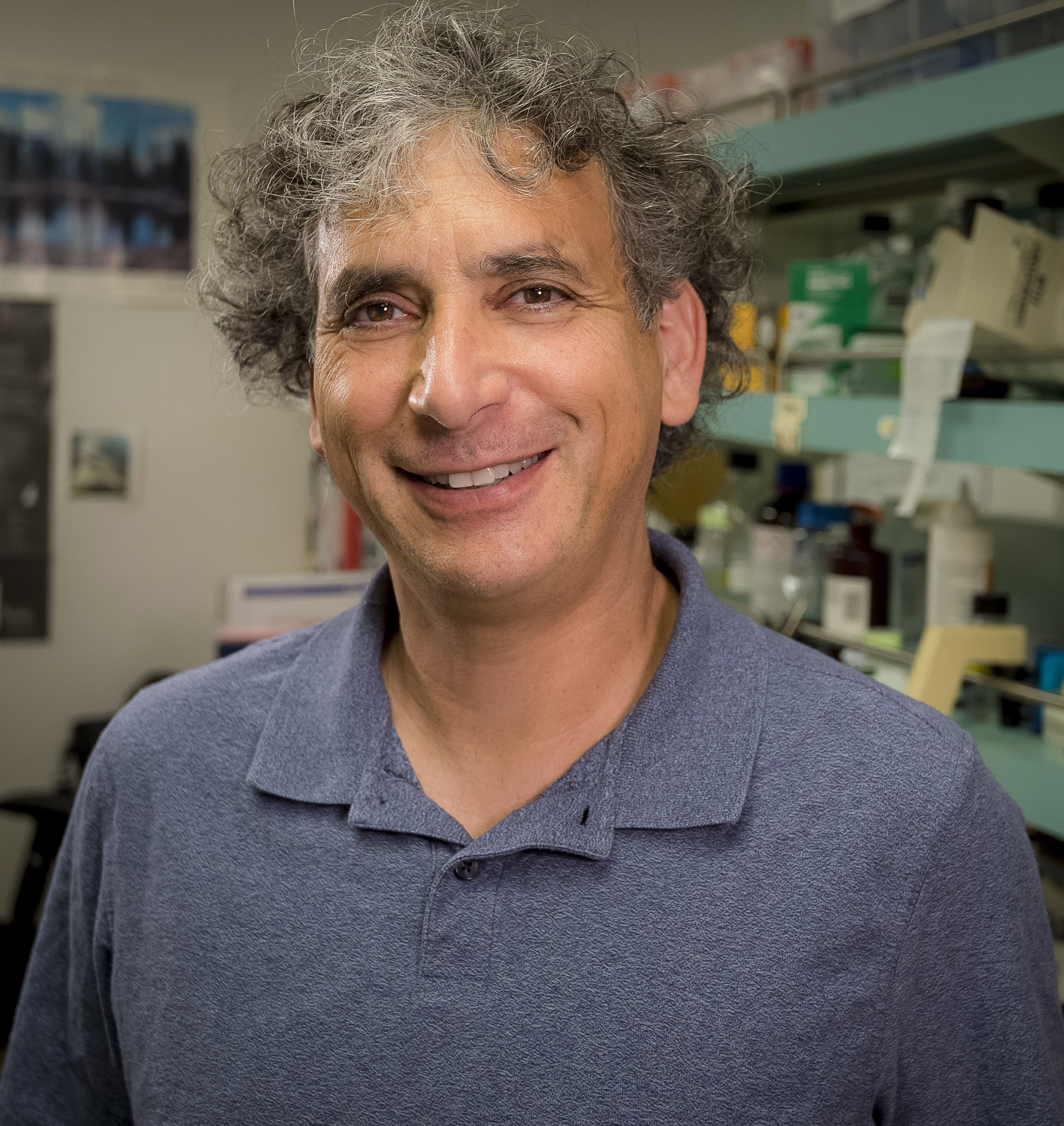-

Ethan Bier, PhD, a professor in the Cell and Developmental Biology Section at UC San Diego, is the science director of TIGS-UC San Diego. During the past 25 years at UC San Diego he has used fruit flies to study basic developmental patterning processes that have been highly conserved during evolution. He also has used fruit flies to study mechanisms of human disease, focusing on understanding the mechanisms by which bacterial toxins contribute to breaching host barriers. Most recently, the Bier lab has developed a novel genetic method referred to as Active Genetics which allows adults to transmit a desired trait to nearly all their offspring rather than to only 50 percent of their progeny as occurs with traditional Mendelian inheritance. Active genetics promises to revolutionize control of vector borne diseases (e.g., malaria) and pests and to greatly accelerate genetic manipulation of organisms for medical and agricultural research.
-

Anthony James, PhD, is Donald Bren Professor of Microbiology & Molecular Genetics (School of Medicine) and Molecular Biology & Biochemistry (School of Biological Sciences) at the University of California, Irvine (UCI). He is a member of the National Academy of Sciences (USA). Dr. James received his bachelors of science and PhD degrees at UCI. He went to Boston in 1979 for postdoctoral work (Harvard Medical School and Brandeis University) and joined the faculty at the Harvard School of Public Health in 1985. He returned to his alma mater in 1989, where he is today. He is working on vector-parasite interactions, mosquito molecular biology, and other problems in insect developmental biology. His research emphasizes the use of genetic and molecular-genetic tools to develop synthetic approaches to interrupting pathogen transmission by mosquitoes.
-

Suresh Subramani, the Global Director of TIGS, is a Distinguished Professor of Molecular Biology. He received his Ph.D. (Biochemistry) in the laboratory of Dr. Howard Schachman at UC Berkeley, and was a post-doctoral fellow (Biochemistry) at Stanford University with Nobel laureate, Dr. Paul Berg. Dr. Subramani is world renowned for his work on the assembly and disassembly of subcellular compartments, notably peroxisomes, and the role of these processes in disease. He also has a strong record of international, national and UC service, having served in an advisory capacity for many organizations and granting agencies. Dr. Subramani also has extensive administrative experience, including his service as the first Executive Vice Chancellor (EVC) at UC San Diego from 2010-2016. He is currently the Global Director for the Tata Institute of Genetics and Society (TIGS) overseeing research in India and at UC San Diego.
Faculty Members
Participating Faculty — Genetics
Participating Faculty — Society
-

Karthik Muralidharan is the Tata Chancellor's Professor of Economics at UC San Diego. Born and raised in India, he earned an A.B. in economics (summa cum laude) from Harvard, an M.Phil. in economics from Cambridge (UK), and a PhD in economics from Harvard. His research spans development, public and labor economics with a focus on improving the effectiveness of public spending in the social sector (education, health and social protection programs) in developing countries, and typically uses large-scale randomized experiments to study the impact of programs and policies at scale. He is a research associate of the NBER, a fellow and board member of BREAD and board member and education program co-chair at JPAL.
-

Anita Raj, PhD, is Director of UC San Diego's Center on Gender Equity and Health and is a Professor in the Division of Global Public Health, Department of Medicine. She is a developmental psychologist with approximately 20 years of experience conducting research on sexual and reproductive health/HIV/STI, gender-based violence, substance misuse and abuse, and the intersection of these issues. Her current research is based in South Asia, West and Central Africa, the United States and Russia. This work includes qualitative and quantitative research to support intervention development and implementation, as well as efficacy and effectiveness trials to evaluate behavioral interventions. Currently, she has projects related to adolescent girls’ early marriage and reproductive/maternal health, gender equality and empowerment measures for monitoring and evaluation, sexual violence prevention programs, engagement of men and boys in family planning promotion and prevention of violence against women and HIV prevention and test and treat interventions.